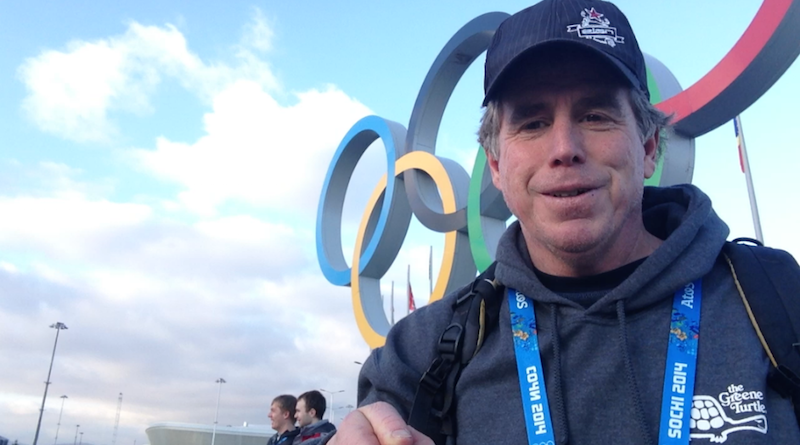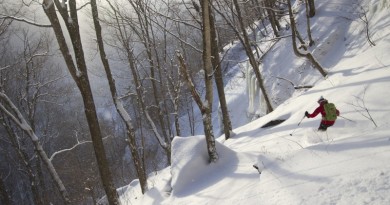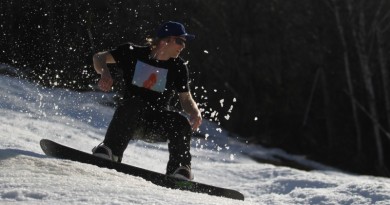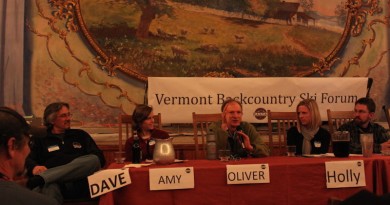Insights on the Sochi Olympics from Dan Egan
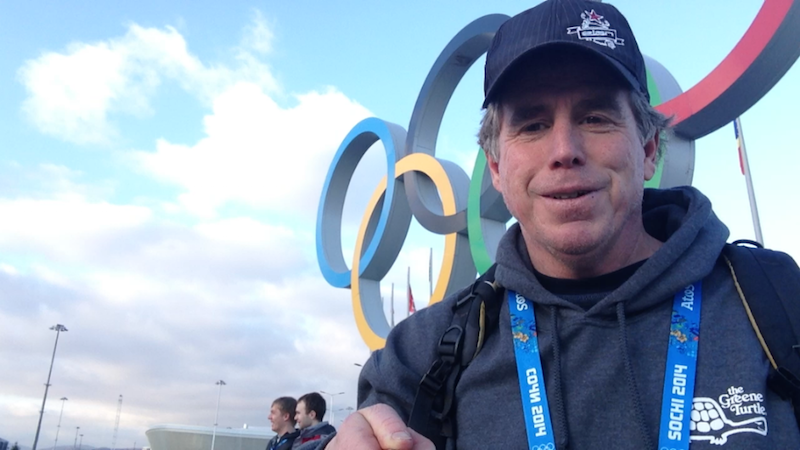
Find out what Dan Egan, a Vermonter with a very successful career in skiing and sports commentary, thinks about Sochi.
By Karen D. Lorentz
Dan Egan, known throughout the ski world as one of the best extreme skiers of all time, and who now leads backcountry clinics for Killington Resort, has been in Sochi as a commentator for Boston.com, where he has a weekly blog and radio show.
Egan has been at the forefront of the extreme-sports scene since the mid-1980s and has led adventure trips from the Alps to the Arctic. One of his companies, Skiclinics.com, runs camps and clinics across North and South America and Europe. Another company, Degan Media, a consulting, marketing and production company, leverages his 25 years of experience in the action-sports industry.
As a producer, his programs have run nationally via broadcast and cable syndication. Corporations, universities and schools around North America have also hired him as a motivational speaker over the last decade.
Egan began commentating in 1996, and also hosts sports shows for NESN. He has been on television and radio since then and currently is a reporter on Extreme Sports for Boston.com.
This is Egan’s third Olympics commentating gig — he covered Vancouver (2010) for Sprint, and the 2012 Summer Olympics in London for Sperry Shoes. With his diverse background, we asked Egan if he would share a few thoughts on the Sochi Olympics games.
S&R: What events have you been covering?
DE: My assignment has been all snow sports, so I’m based at the Mountain Cluster at Sochi.
S&R: What do you look for when covering an event?
DE: I like the personalities that work at and participate in the Olympics. Interviewing people who are “peak performers” is always educational and motivational. I like to see what drives people to reach the top of their sport.
S&R: How long are you there?
DE: I left the states on January 31 and will be back on the 24th of February. So long enough to miss the great USA and also long enough to settle into the Olympic vibe.
S&R: How is Sochi as an Olympic venue?
DE: Well, this is my second trip to Sochi. I came over in 2010 when I was a finalist to be the general manager at the resort holding the games. It is amazing to see how the whole city has been transformed in such a short time. The Olympic movement is a powerful one and it is a transformative one as well. The Olympics leave an impression on those who view it, those who experience it, and the places that host it.
S&R: What insights can you offer readers on the significance of the games — for the athletes, for the U.S., for the world?
DE: The Olympics always bring the spotlight to the smaller sports — Nordic, bob sled, luge, and skeleton. These sports shine at the games and they bring out some amazing stories from all over the world. I am going to cover the South African and Thailand skiers, one in skier cross and one in GS.
S&R: Can you give us insights as to why you personally like to attend the Olympics?
DE: I have been associated with Olympians for a long time, and now covering the Olympics you really start to understand what it’s all about.
The athletes always talk about the dedication it takes to get to the Games and it does, it takes a lot of focus. The qualifying process for the Games is brutal and long.
Attending the Olympics is special because it’s about national pride, and it’s my country against yours competing in sport. The essence of that is good-hearted, friendly competition and above all it’s fun.
The Olympic movement brings together people of all nations from all economic situations and fosters communication, relationships and experiences that transcend even our electronic culture — and that’s a good thing.
S&R: Can you share any insights from your observations about the Olympians as people?
DE: There are two questions I always ask Olympians.
One is, “What would a medal mean to you?”
The common answer is “Everything!”
My follow-up is always, “Can you define everything?”
That is when the conversation turns interesting because now they have to think about their past, where they came from, who helped them, and how they got to the Olympics. Olympians are not made by themselves. It’s their parents, their coaches, their mentors and the people surrounding them who create, shape and define them.
When the athlete appreciates that, it is usually a special moment in time.
Readers can follow Dan Eagan’s travels and thoughts at www.boston.com; Sugarbush’s two-time Olympian Doug Lewis is also covering alpine racing at the Olympics for NBC Universal radio and Westwood One.

